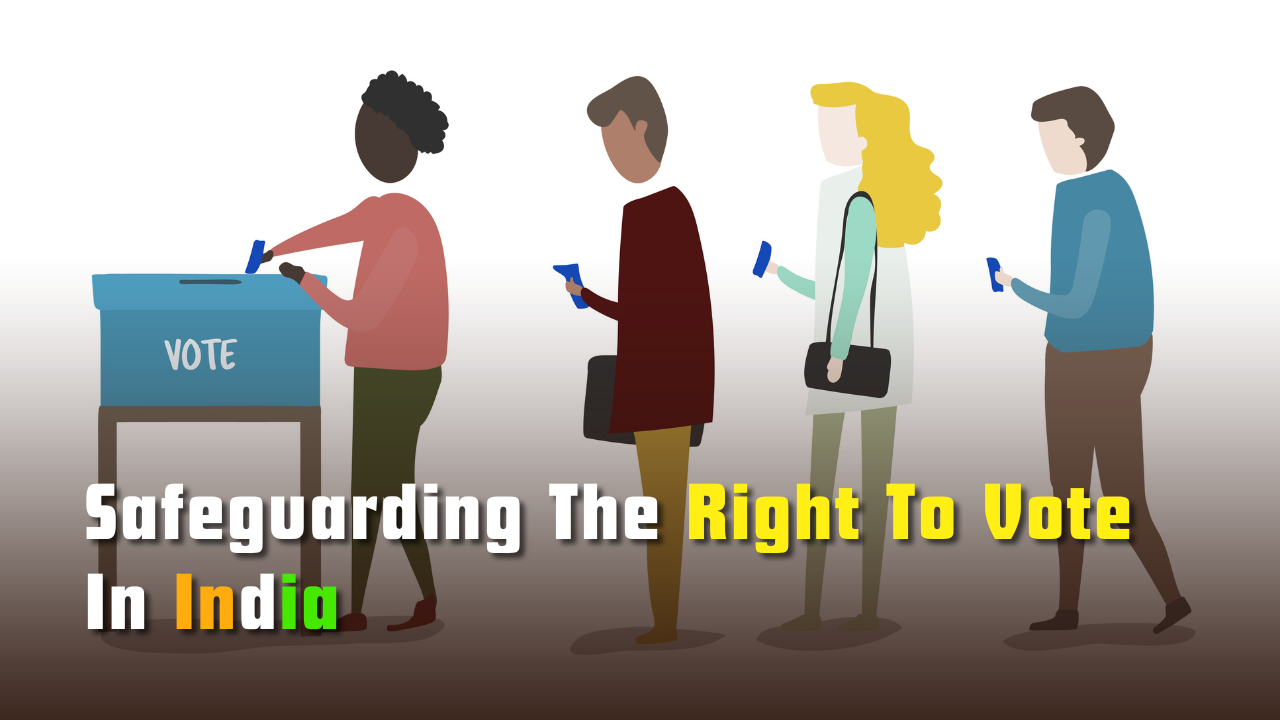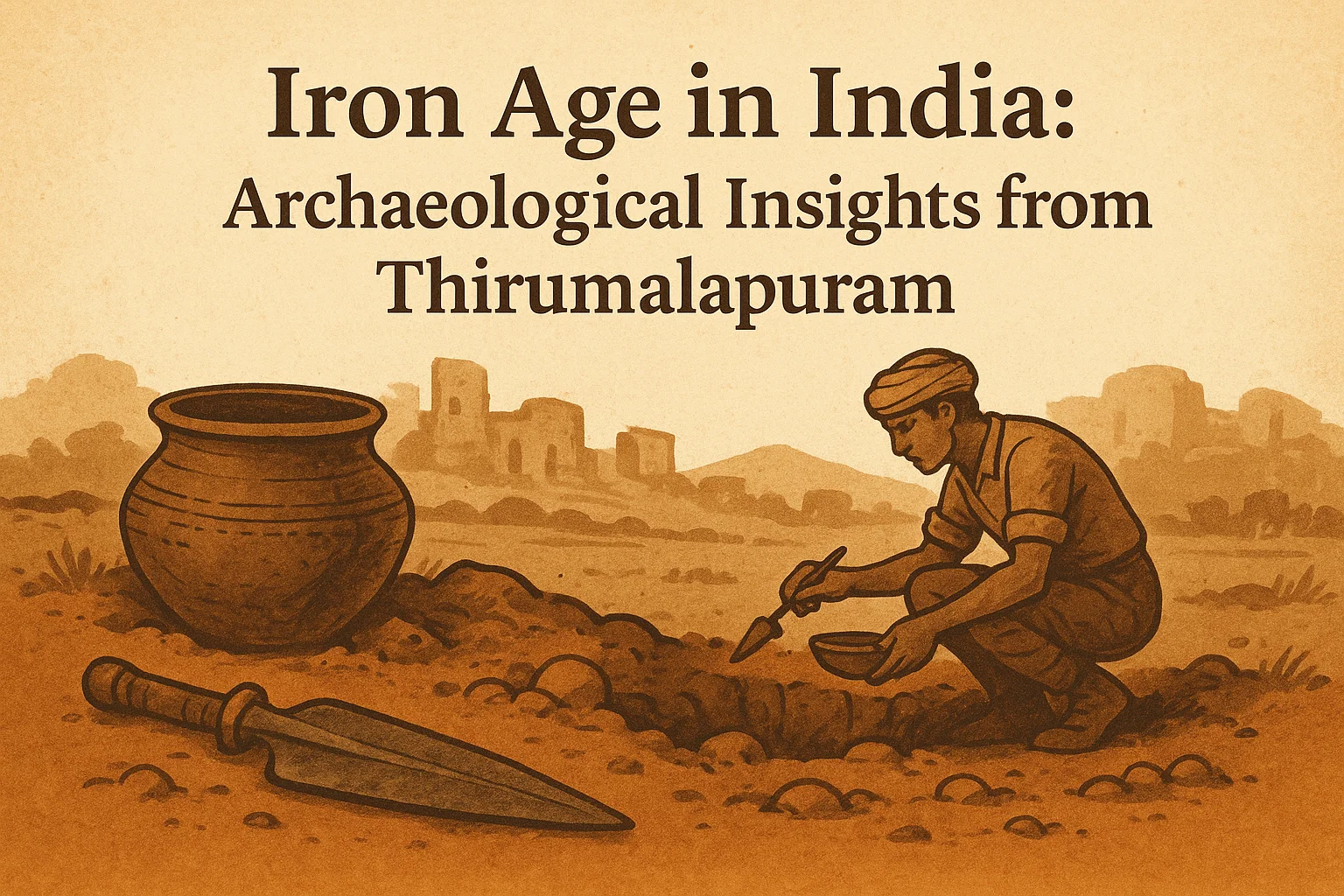Safeguarding the Right to Vote in India
This article, Kartikey Singh’s “The Need to Safeguard the Right to Vote” (The Hindu, 11 July 2025), emphasises that India’s democracy depends on inclusive, accurate electoral rolls and due-process voter revisions. Safeguarding the right to vote requires responsible, lawful institutions and active, informed citizens working together to ensure every genuine voter can participate.
Introduction: Why Voting Matters
The right to vote is the heart of any democracy. It allows every citizen, no matter how rich or poor, to have a say in choosing their government. In India, this right has been respected since the country’s independence. But recent events in Bihar, where voter lists are being checked and revised, have raised questions about whether all citizens still have fair access to this right. Kartikey Singh’s article in The Hindu (11 July 2025) reminds us that protecting the right to vote is not just a legal matter, but a moral one. This essay explores the context, challenges, and importance of keeping India’s voting system fair, inclusive, and strong.
Historical Context: India’s Unique Path to Universal Voting
Many Western countries gave voting rights to people slowly and often unfairly. For example, in the United Kingdom, only wealthy men could vote at first, and it took many years for women to be included. In the United States, even after African Americans and women were given voting rights on paper, many of them still could not vote due to unfair rules and practices.
India, however, chose a different and more courageous path. Right from the start, in 1950, India allowed all adult citizens to vote, regardless of gender, caste, education, or wealth. This principle is known as Universal Adult Suffrage. Article 326 of the Indian Constitution guarantees this right. The voting age was later lowered from 21 to 18 by the 61st Constitutional Amendment in 1989, further expanding people’s participation in democracy.
The country’s leaders believed that even if most of the population was poor or uneducated, they still deserved to choose their representatives. This inclusive vision gave the Indian people a voice and helped build trust in the new democracy.
The Legal Foundations of Voting in India
India’s voting system is supported by two main laws: the Representation of the People Act (RPA) of 1950 and the RPA of 1951. The 1950 Act focuses on the preparation and revision of electoral rolls (the official lists of voters), while the 1951 Act deals with the rules of how elections are conducted.
One of the most inspiring moments in Indian electoral history was when the first Chief Election Commissioner, Sukumar Sen, managed to organise elections for 173 million voters—most of them illiterate. To make sure they could still vote with dignity, he introduced election symbols, like a hand or a lamp, that helped people identify their chosen candidates. This clever idea turned a challenge into a democratic victory.
These efforts show that the right to vote is not just about writing laws, but about finding real ways to help every citizen take part in elections.
The Current Issue in Bihar: A Case of Concern
Recently, the Supreme Court of India told the Election Commission to accept Aadhaar cards, voter IDs, and ration cards as valid documents for a special revision of electoral rolls in Bihar. This revision process, known as the Special Intensive Revision (SIR), is meant to clean up voter lists by removing fake or ineligible names and adding missing ones.
However, some people are worried that this process may be used to unfairly remove genuine voters, especially those from poor or marginalised communities. There are fears that people who have voted for years might be removed just because they cannot prove their citizenship properly or because their documents are not updated.
The Court’s statement that the “right to vote goes to the very root of the functioning of our republic” shows how serious this issue is. A democracy cannot work properly if real citizens are blocked from voting.
Is the Right to Vote a Fundamental Right?
Interestingly, in India, the right to vote is not considered a fundamental right like the right to equality or freedom of speech. According to a Supreme Court decision in 2006 (Kuldip Nayar v. Union of India), the right to vote is a statutory right, meaning it is given by law (the RPA, 1951) but is not directly protected by the Constitution’s list of fundamental rights.
Some judges, like Justice Ajay Rastogi, have disagreed with this view. They argue that the right to vote is part of the freedom of expression under Article 19(1)(a) and the right to life under Article 21. Even if the majority of the court did not agree, this shows that many believe voting is not just a legal formality, but a basic part of being a citizen in a democracy.
In fact, many court judgments have said that even if voting is not a fundamental right, it is a democratic imperative—something that is essential for democracy to survive and flourish.
The Need for Accurate Electoral Rolls
One of the key messages in Singh’s article is that democracy depends on accurate and inclusive voter lists. If the electoral roll has errors—such as duplicate names, names of people who have died or moved away, or if it leaves out eligible voters—then the principle of “one person, one vote” is broken.
Inaccurate rolls can lead to impersonation, where someone votes in place of another person. They can also lead to disenfranchisement, where someone is wrongly removed and cannot vote at all. Both problems are serious and damage public trust in elections.
According to the law, only major errors that clearly affect the result of the election can be used to question its validity. Minor mistakes or individual cases, while unfortunate, do not make the whole election invalid. Still, that does not mean they should be ignored. Every single vote matters.
The Problem of Citizenship Verification
One of the most controversial parts of the voter list revision in Bihar is the issue of citizenship verification. In the past, the Election Commission allowed officials to remove people suspected of being foreigners from the rolls without proper hearings. But in the case of Lal Babu Hussein v. ERO (1995), the Supreme Court said this was wrong.
The court ruled that such actions violated the principles of natural justice. A person cannot be removed from the voter list just because someone doubts their citizenship. There must be a full inquiry, proper notice, and a chance to respond. Also, if a person was already on the voter list in the past, that should be taken seriously as evidence.
The recent situation in Bihar must follow these guidelines. Otherwise, the process will be unfair and may violate people’s rights.
Who Counts as an “Ordinary Resident”?
Another important legal point is about who qualifies as an ordinary resident of a place and can vote there. According to Section 19 of the RPA, 1950, a person must be 18 or older and an ordinary resident of a constituency to be registered.
The law says that a person should have a genuine and regular presence in the place—not just a temporary stay. For example, a student who studies in a hostel in one city but has a permanent home in another may not qualify to vote in the city where the hostel is.
This rule is meant to prevent fake or multiple registrations and to keep voters connected to their local communities. It also ensures accountability—representatives should answer to people who really live in their constituencies.
Making the System More Inclusive
India’s election system has also tried to include people who cannot vote in the usual way. Postal ballots are given to soldiers, police on duty, government staff posted abroad, and others who are away during elections. But overseas Indians can only vote in person and are not yet allowed to vote by post or proxy.
This shows that while India has done well in including most citizens, there is still room for improvement. Technology and new laws can help make the system even more fair and inclusive.
Balancing Vigilance and Inclusion
The article wisely warns against using voter roll revision as a tool for exclusion. Singh agrees that the rolls should be accurate and clean. But he also stresses that the goal must be inclusion, not just removal.
Every step taken by the Election Commission must follow the law, respect citizen rights, and avoid creating fear or confusion. Courts have also said that political parties should help inform and protect voters, especially in areas with low literacy and awareness. After all, democracy is not just about rules—it is about people.
Conclusion: A Shared Responsibility
Kartikey Singh ends with a powerful idea: safeguarding the vote is not only the job of the Election Commission or the courts. It is a shared responsibility. Citizens must check their voter details, speak up when something is wrong, and help others do the same. Political parties must act responsibly, and institutions must be fair and firm.
India’s democracy is one of the largest and most vibrant in the world. But it can only stay that way if we all protect its foundation—the right to vote. As Winston Churchill once said, the real strength of democracy lies in the hands of the “little man” with his pencil and paper. Let us make sure no one takes that pencil away.
Subscribe to our Youtube Channel for more Valuable Content – TheStudyias
Download the App to Subscribe to our Courses – Thestudyias
The Source’s Authority and Ownership of the Article is Claimed By THE STUDY IAS BY MANIKANT SINGH





